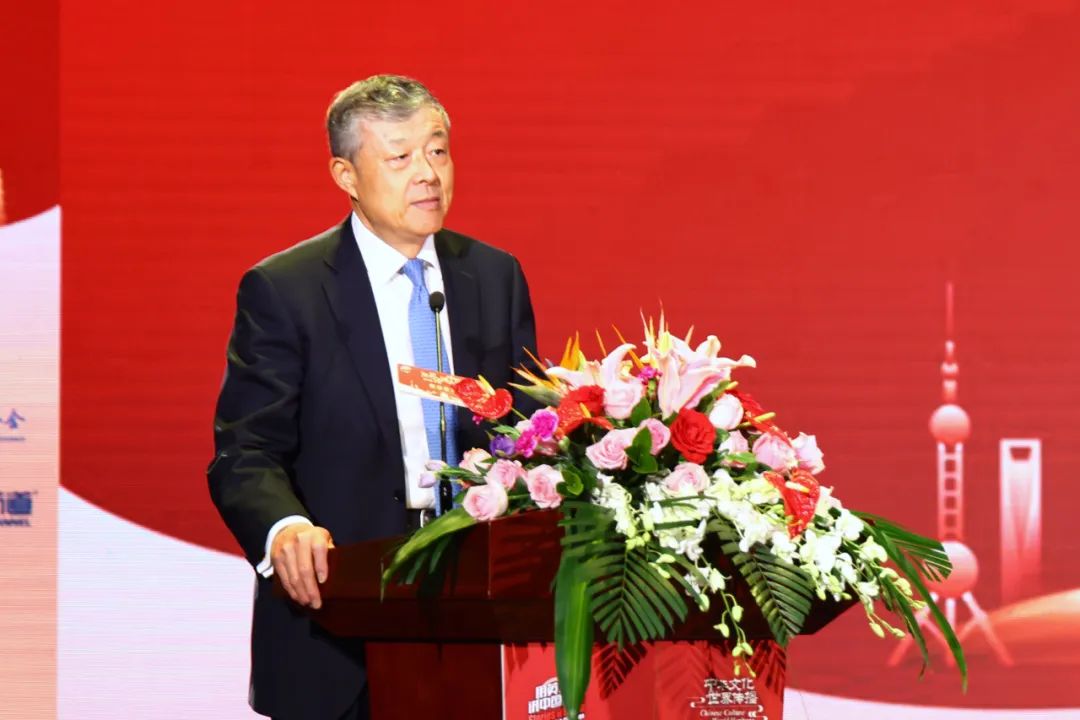Young People Should Strive to Tell China's Story Well
—Speech at the Launch Ceremony of the Fourth
"Telling China's Story in English" Event
Liu Xiaoming
(December 10, 2023, Fuzhou, China)

This year marks the 50th year of my diplomatic career, more than half of which were spent abroad. Over half a century, I have had the privilege of witnessing the growth of China's comprehensive national strength and international influence, as well as historic changes in China's relations with the world. I feel deeply that the world's understanding of China is a process from not knowing to knowing, from knowing a little to knowing more.
Over 40 years ago, just after China and the United States established diplomatic relations, I went to study at the Fletcher School of Law and Diplomacy at Tufts University. When people asked me where I was from, I said China. They would then ask, "Which China?" I told them, there is only one China in the world. If someone asks this question today, they either still live in the last century or come from another planet.
More than 20 years ago when I served as Chinese Ambassador to Egypt, the vendors near the pyramids would ask me, "Are you from Japan?" I said, no. They then asked, "Are you from Korea?" Again I said, no. When I told them I was from China, they were curious. It shows that at that time, not many Chinese tourists went abroad. Since 2013, the number of Chinese citizens traveling abroad has been the highest in the world. In 2019, before the pandemic, this reached 155 million. Today, in tourist destinations around the world, you can see Chinese people everywhere. The vendors near the pyramids, seeing an East Asian face, might first ask, "Are you from China?"
As our country increasingly steps into the center of the world stage, the international community expects China to play a greater role in global affairs and is eager to understand China more. However, it must be noted that the world's understanding of China still has a significant deficit, with various misunderstandings, doubts, and even suspicions. There are many reasons for this. First, Western audiences mainly rely on Western media for information about China, which often presents a biased and even deliberately distorted view. Second, some in the West still harbor deep-rooted arrogance and prejudice, preventing them from viewing China objectively and fairly. Third, a few anti-China forces are doing everything possible to contain and obstruct China's rise, fabricating all sorts of lies and rumors, and engaging in stigmatization and demonization of China.

Therefore, telling China's story well and showing a true, comprehensive, and three-dimensional China to the world remains a daunting task. Today, no one might ask "which China are you from," but "one China" remains a core issue in our foreign relations. Some people do not understand the origins of the Taiwan issue, and some forces are using it to try to hinder China's national reunification and rejuvenation. Today, upholding “one China” principle remains key in China’s relations with other countries.
I often say that telling China's story well is a job not just for leaders or diplomats or scholars, but for every Chinese. To the young friends present here today, I would say, each of you is a spokesperson for China's image and a broadcaster of China's voice. It is your responsibility to tell China's story well.
On how to tell China's story well in English, I would like to offer five suggestions to the young friends:
First, "know yourself." To tell China's story well, you must first understand China. You need to know your own country, including its history, culture, development path, and major policies, and understand where China has come from and where it is going. President Xi Jinping pointed out that the key to understanding China lies in understanding the Chinese path to modernization. Today, China is advancing the noble cause of building a great country and national rejuvenation on all fronts through the Chinese path to modernization and advocating the building of a community with a shared future for mankind. The future of China is closely connected with that of all mankind.
Second, "know others." To tell China's story well, you also need to understand the world. You need to be aware of what others want to know most about China and and what their misunderstandings and prejudices are, so you can target your storytelling, clarify the facts, build trust and dispel doubts.
Third, learn to "communicate." To tell China's story well, you need to improve your communication skills. You must learn to use the language and narrative that foreign audiences can understand. Only with good communication skills can you not only tell China's story, but also tell it well.
Fourth, be good at "making friends." President Xi Jinping said that we should make friends widely, unite and win over the majority, and continuously expand the international circle of friends who understand and are friendly towards China. Young people have many common languages and interests with your peers in other countries. You should make and deepen friendships, enhance understanding, inspire resonance, and let China's story tell itself through friendship.
Fifth, master "English." Language is the key to understanding a country and a bridge between different cultures. Proficiency in a foreign language, especially English, is fundamental to telling China's story well. Telling China's story to foreign audiences in their own language is more direct, vivid, and down to earth. This shows respect for other people’s cultures and traditions, gets closer to them, and enhances the appeal and influence of China's story. A good foreign language skill can also earn respect from the audience, making China's story more effective.
Lord Powell, foreign affairs advisor to former British Prime Minister Thatcher, wrote in his blurb for my new book "Sharp Dialogue", “Ambassador Liu Xiaoming emerges as a formidable debater and someone who relishes a battle of wits.” “His is also a considerable achievement linguistically, reflecting a serious knowledge of English literature.” “ ‘I hope we can have a bit more sense and sensibility rather than pride and prejudice’, he reproves one interviewer at one point.” Among the British political figures I know, Lord Powell has a solid and profound command of language and is most scrupulous with words. Getting a positive review about language skill from him is rare. This shows that the people not only care about what you say but also how you express it.
President Xi Jinping pointed out, “For any great cause to succeed, it must take root in the people, gain strength from the people, and be accomplished by the people.”
Telling China's story in English to the world requires our joint efforts. I encourage you to cherish the prime of youth and work hard on how to tell China's story in English. I hope you will become good story tellers who help the international community know more about your country and present to the world a credible, lovable and respectable China. My young friends, give it your very best and let your talent shine!
